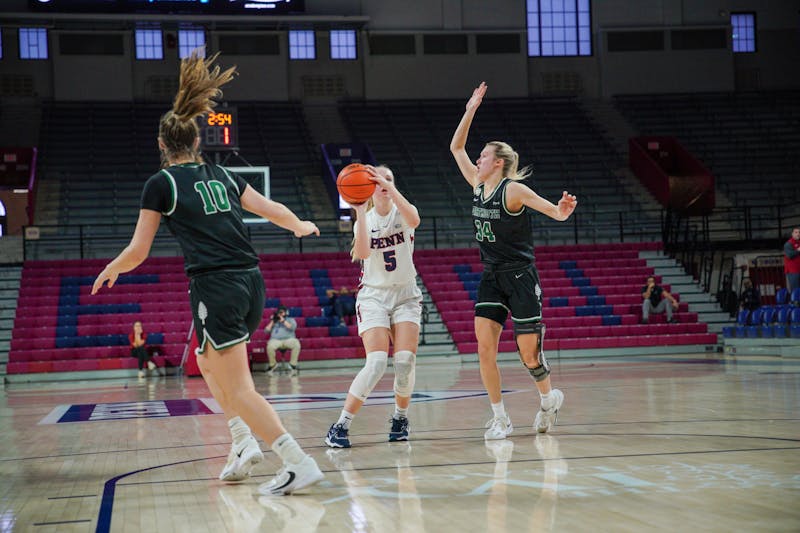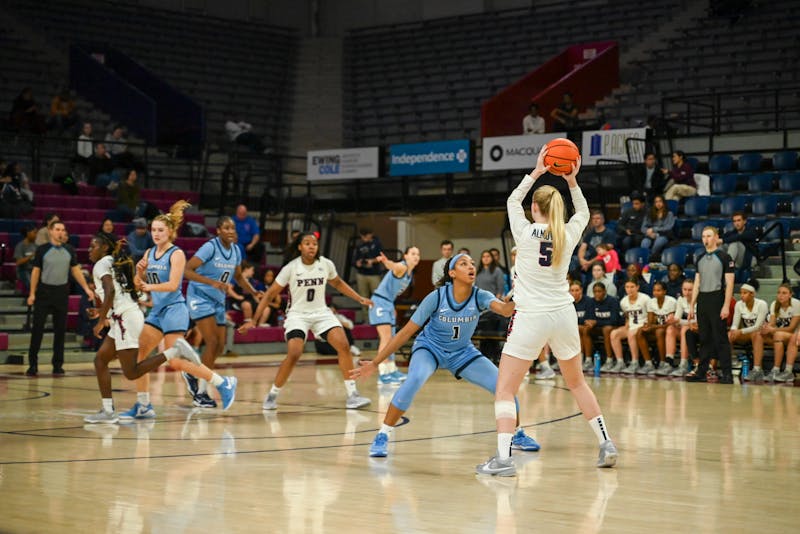
Columnist Jesse Van Doren asserts that exclusivity should not be mistaken for excellence in college education.
Credit: Jackson FordWith tonight’s Ivy Day admission decisions release, over 65,000 hopeful Quakers — if this year’s numbers resemble last cycle’s — will anxiously log into their admissions portals, bracing for the dreaded “status update.” For around 61,500 of them (roughly 95%) the news won’t include a spot in the Class of 2029.
While the Dean of Admissions may “regretfully inform” these applicants of their decision, the Board of Trustees will be celebrating Penn’s ultra-selectivity a few months from now. That’s because, for Penn and our peer institutions, the more brilliant students we reject, the more desirable we appear.
For Penn, exclusivity is excellence. That doesn’t make any sense.
As our University Values so eloquently highlight, the ultimate purpose of higher education is to advance “opportunity toward a better future for all.” Universities — especially those as resource-rich as Penn — are meant to be engines of social change, opening paths to more opportunities and shaping promising leaders. It’s ironic then, that elite colleges pride themselves on shutting out as many people as possible, effectively limiting their social impact.
The reality is the vast majority of applicants to schools like Penn are more than qualified to succeed in a rigorous academic environment. That means we’re closing our doors to tens of thousands of hardworking students who could fully take advantage of a Penn education to change their lives and the lives of those around them. In that sense, our prized 5.4% acceptance rate is really an indication of our failure to be a maximally impactful institution.
Moreover, Penn admissions officers rendering decisions by splitting hairs over minute differences between accomplished applicants doesn’t truly strengthen our student body — in many ways, this weakens it. In, the New York Times found that more Penn students came from the top 1% than the entire bottom 60%. For Penn’s class of 2028, 14% of admits were legacies. In our relentless focus on gatekeeping admissions, Penn’s limited seats are disproportionately filled by the advantaged.
But it doesn’t have to be this way.
Say Penn decided to increase the size of its incoming class. Without sacrificing academic excellence, we could better fulfill our mission of expanding access to opportunity by instructing more highly-deserving students who would use their education for the better. By creating more spots, Penn could welcome a wider array of perspectives, fostering a more balanced campus enriched by diverse backgrounds rather than those just clustered at the top of the socioeconomic ladder.
Now, I’m not here to argue the logistics of hiring more staff or constructing another college house to support a larger class-size. However, such expansions are certainly not unheard of. In recent years multiple highly selective schools, including Rice University, Yale University, and Princeton University, have all taken initiative to build new housing in order to grow their undergraduate population, citing a focus on expanding access and diversity.
New dorms are also not the only potential path forward — education researchers have proposed alternatives such as expanding hybrid learning models and establishing satellite campuses to reach more students. After all, if one can get an MBA from Wharton San Francisco, why can’t Penn do the same for undergrads? We have a $22.3 billion endowment to make it happen. And sure, Penn already enrolls more students than a lot of its peers — which is fantastic! But that doesn’t excuse us from actively working to uphold the values of higher education.
Ultimately, as powerful as these changes could be, they’re dismissed as unrealistic over a single word: prestige. An Ivy League education is no different from that blue Goyard bag you see on Locust: its value is found in a brand name, capturing allure through rarity. Ivy Day is how Penn sustains this “status.” But instead of staking our reputation on this year’s 61,500 letters not offering admission, we could define success by a much more meaningful metric: the number of accomplished students Penn truly supports.
JESSE VAN DOREN is a College first year studying political science and earth & environmental science from Baltimore. His email is jessevd@sas.upenn.edu.
The Daily Pennsylvanian is an independent, student-run newspaper. Please consider making a donation to support the coverage that shapes the University. Your generosity ensures a future of strong journalism at Penn.
Donate









